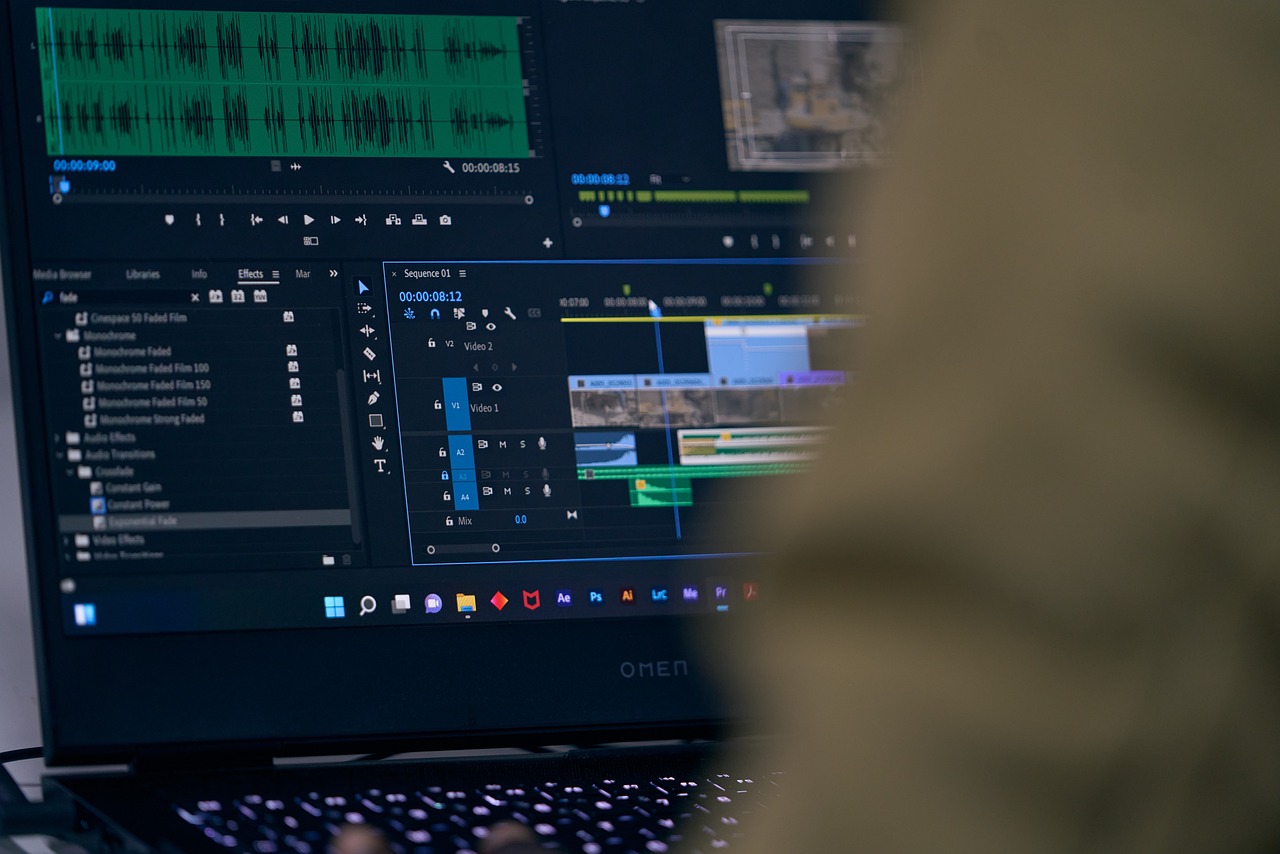How to Become a Freelance Video Editor with No Experience?

Video editing has become a sought-after skill, with a growing demand for creative professionals who can shape raw footage into captivating visual stories. If you have a passion for storytelling, an eye for detail, and a desire to work independently, becoming a freelance video editor could be the perfect career path for you. Even if you lack professional experience, this article will guide you step-by-step on how to start your journey as a freelance video editor and build a successful career in the industry.
Understanding the Role of a Freelance Video Editor
Before diving into the world of video editing, it’s essential to understand what a freelance video editor does. As a video editor, your primary responsibility will be to assemble, enhance, and manipulate video footage to create a cohesive and visually appealing final product. Your work might involve cutting and rearranging clips, adding transitions, visual effects, sound, and graphics to enhance the overall quality of the video.
Acquiring the Necessary Skills and Tools
While you may not have professional experience, acquiring the right skills is crucial. Familiarize yourself with popular video editing software such as Adobe Premiere Pro, Final Cut Pro, or DaVinci Resolve. Many online platforms offer tutorials and courses to help you grasp the basics and advanced techniques of video editing.
Building Your Portfolio
As a freelance video editor, your portfolio will serve as your resume and showcase your skills to potential clients. Even without professional experience, you can start by creating your own video projects or collaborating with friends and family. Focus on quality rather than quantity, and include a variety of editing styles to demonstrate your versatility.
Utilizing Online Freelance Platforms
In the beginning, joining freelance platforms like Upwork, Fiverr, or Freelancer can be an excellent way to find clients and build your reputation. Create a compelling profile that highlights your skills and showcases your portfolio. Be proactive in bidding for projects and offering your services at competitive rates to attract initial clients.
Networking and Collaborating
Networking plays a vital role in the freelancing world. Connect with fellow videographers, filmmakers, and content creators in online forums, social media groups, and local events. Collaborating on projects can not only improve your skills but also open doors to new opportunities.
Offering Pro Bono Services
While it may seem counterintuitive, offering pro bono or discounted services initially can help you gain valuable experience and positive reviews. Look for non-profit organizations, local businesses, or aspiring YouTubers who could benefit from your video editing expertise.
Marketing Yourself
As a freelance video editor, marketing yourself is crucial for success. Create a professional website or blog where you can showcase your work, share valuable tips on video editing, and offer insights into your creative process. Utilize social media platforms to reach a wider audience and engage with potential clients.
Refining Your Editing Style
Developing a unique editing style can set you apart from the competition. Experiment with different editing techniques, study the work of renowned editors, and continuously refine your skills to deliver exceptional results to your clients.
Embracing Continuous Learning
The world of video editing is constantly evolving with new software updates and creative trends. Stay up-to-date with the latest advancements in the industry by taking online courses, attending workshops, and reading relevant blogs.
Providing Exceptional Customer Service
Delivering excellent customer service is vital for building a thriving freelance career. Communicate effectively with your clients, meet deadlines, and be open to feedback. Satisfied clients are more likely to recommend your services to others.
Setting Realistic Goals
As you embark on your freelance video editing journey, set achievable short-term and long-term goals. These goals will keep you motivated and focused on your progress.
Managing Finances and Pricing
Freelancers must handle their finances efficiently. Keep track of your income and expenses, and set appropriate pricing for your services based on your skills and market demand.
Handling Rejection and Criticism
In the freelancing world, rejection and criticism are inevitable. Learn to embrace feedback and use it as an opportunity to grow and improve.
Building a Strong Online Presence
Having a strong online presence is crucial in today’s digital landscape. Engage with your audience, participate in online discussions, and share valuable content to establish yourself as an authority in video editing.
Expanding Your Services
As you gain experience and confidence, consider diversifying your services. Offer additional video-related services, such as motion graphics, color grading, or video marketing, to cater to a broader clientele.
Conclusion
Becoming a freelance video editor with no prior experience is undoubtedly challenging, but with dedication, creativity, and a proactive approach, you can overcome these obstacles and build a successful career. Remember that every journey begins with a single step, and by following the steps outlined in this article, you’ll be well on your way to becoming a proficient and sought-after freelance video editor.
FAQs
1. Do I need to invest in expensive video editing software?
While professional software can enhance your capabilities, there are free and affordable alternatives available, especially for beginners.
2. How long does it take to become a proficient video editor?
The learning curve varies for each individual, but consistent practice and dedication can lead to proficiency within a few months.
3. Can I work as a freelance video editor while having a full-time job?
Yes, freelancing allows flexibility, and you can take on projects during your free time.
4. Are online video editing courses worth it?
Yes, online courses provide valuable insights and techniques that can accelerate your learning process.
5. How do I handle difficult clients?
Patience, clear communication, and a professional approach are essential when dealing with challenging clients.
Absolutely! While a creative background can be advantageous, passion, dedication, and continuous learning can make anyone a skilled video editor.
7. How much should I charge for my video editing services?
Your rates should reflect your skill level, the complexity of the project, and market rates. Research industry standards and adjust your pricing accordingly.
8. Is it necessary to have a formal education in video editing?
Formal education can be beneficial but is not a strict requirement. Your portfolio and practical experience will speak volumes about your abilities.
9. What file formats should I deliver to clients?
Always confirm the preferred file formats with your clients. Common formats include MP4, MOV, and AVI.
10. How do I handle tight deadlines as a freelance video editor?
Effective time management, breaking the project into manageable tasks, and setting realistic expectations with clients are key to meeting tight deadlines.
Final Thoughts
Becoming a freelance video editor with no experience may seem daunting, but it is entirely achievable with the right mindset and dedication. Embrace the learning process, build a strong portfolio, and actively seek opportunities to gain experience. Remember that every successful video editor starts somewhere, and with perseverance, you can carve your path to success in the dynamic world of video editing.
Disclaimer: The information provided in this article is for educational and informational purposes only. You can exercise your own discretion and research before making any decisions related to your career in video editing.






